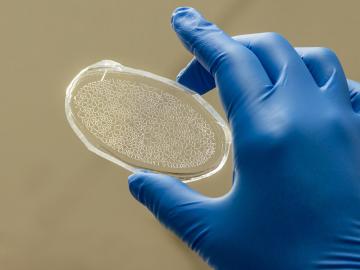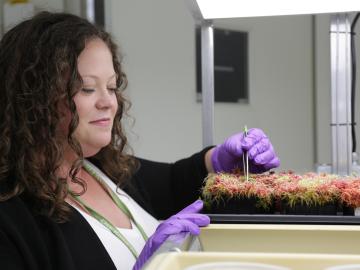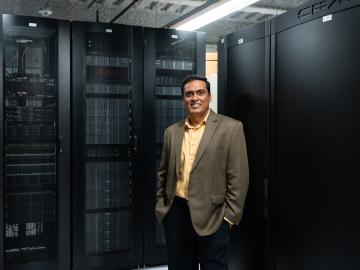
Filter News
Area of Research
News Type
News Topics
- (-) Advanced Reactors (12)
- (-) Big Data (45)
- (-) Bioenergy (68)
- (-) Buildings (30)
- (-) Chemical Sciences (35)
- (-) Clean Water (16)
- (-) Security (16)
- 3-D Printing/Advanced Manufacturing (56)
- Artificial Intelligence (77)
- Biology (80)
- Biomedical (42)
- Biotechnology (25)
- Composites (11)
- Computer Science (111)
- Coronavirus (19)
- Critical Materials (5)
- Cybersecurity (14)
- Education (2)
- Emergency (3)
- Energy Storage (32)
- Environment (116)
- Exascale Computing (51)
- Fossil Energy (6)
- Frontier (44)
- Fusion (38)
- Grid (32)
- High-Performance Computing (81)
- Hydropower (6)
- Isotopes (33)
- ITER (4)
- Machine Learning (37)
- Materials (51)
- Materials Science (55)
- Mathematics (8)
- Mercury (7)
- Microelectronics (3)
- Microscopy (23)
- Molten Salt (2)
- Nanotechnology (17)
- National Security (60)
- Neutron Science (82)
- Nuclear Energy (66)
- Partnerships (36)
- Physics (34)
- Polymers (9)
- Quantum Computing (35)
- Quantum Science (48)
- Simulation (42)
- Software (1)
- Space Exploration (13)
- Statistics (2)
- Summit (40)
- Transportation (30)
Media Contacts

ORNL has provided hydropower operators with new data to better prepare for extreme weather events and shifts in seasonal energy demands caused by climate change.

When Matt McCarthy saw an opportunity for a young career scientist to influence public policy, he eagerly raised his hand.

Scientists at ORNL have created a miniaturized environment to study the ecosystem around poplar tree roots for insights into plant health and soil carbon sequestration.

When the COVID-19 pandemic stunned the world in 2020, researchers at ORNL wondered how they could extend their support and help

Researchers at ORNL are tackling a global water challenge with a unique material designed to target not one, but two toxic, heavy metal pollutants for simultaneous removal.

Chemical and environmental engineer Samarthya Bhagia is focused on achieving carbon neutrality and a circular economy by designing new plant-based materials for a range of applications from energy storage devices and sensors to environmentally friendly bioplastics.

Science has taken Melanie Mayes from Tennessee to the tropics, studying some of the most important ecosystems in the world.

As the United States moves toward more sustainable and renewable sources of energy, hydropower is expected to play a pivotal role in integrating more intermittent renewables like wind and solar to the electricity grid

Microorganisms may provide hope that peatlands can withstand hotter temperatures in a changing climate.

The Atmospheric Radiation Measurement Data Center is shepherding changes to its operations to make the treasure trove of data more easily available accessible and useful to scientists studying Earth’s climate.


